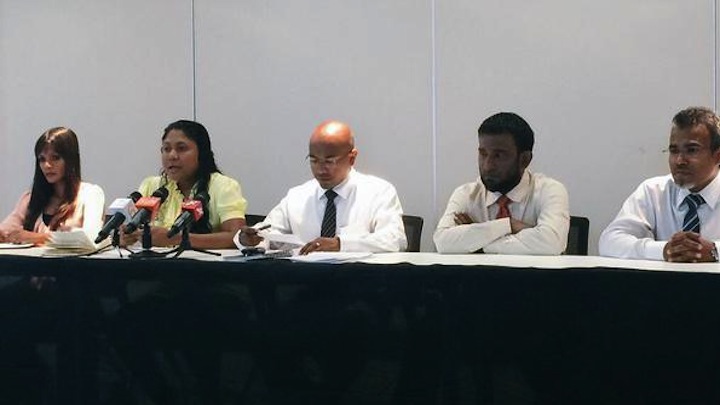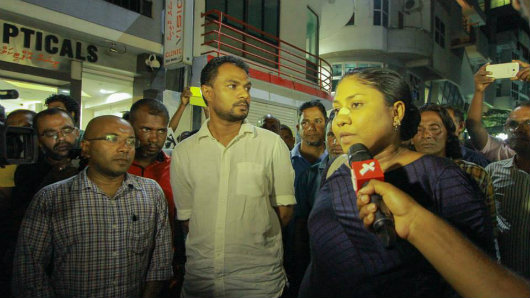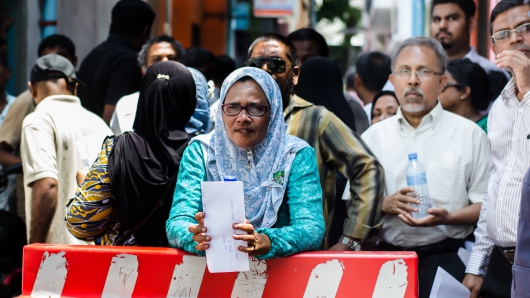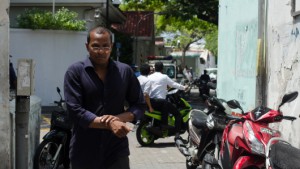Former President Mohamed Nasheed’s lawyers have appealed to President Abdulla Yameen to reduce the 13-year jail sentence of the opposition leader.
In a letter sent to the president yesterday, lawyer Hassan Latheef noted that the clemency law gives the president the “full power and discretion” to reduce the sentence.
“The president has the discretion, on the president’s own initiative, to commute the sentence of a person convicted of a criminal offence, based on their age, health, treatment they are currently undergoing, their status and circumstance, or from a humanitarian perspective,” reads article 29(c) of the Clemency Act.
President’s office spokesperson Ibrahim Muaz Ali told Minivan News that the office attends to letters in accordance with procedures and declined to comment on whether President Yameen would consider the appeal.
Despite the lapse of a 10-day deadline for filing appeals, the prosecutor general and the government have insisted that Nasheed could still appeal at the High Court. President Yameen has maintained that he does not have constitutional authority to pardon convicts before the appeal process is exhausted.
Nasheed was found guilty of terrorism on March 13 over the military’s detention of criminal court chief judge Abdulla Mohamed in January 2012. The former president’s conviction drew widespread international criticism over the apparent lack of due process in the 19-day trial.
Latheef contended that Nasheed was denied the right to a fair trial as guaranteed by both domestic law and the Maldives’ obligations under international conventions.
The former human resources minister noted that foreign governments, international human rights organisations, and the UN have condemned the trial.
Amnesty International called the conviction a “travesty of justice” while the UN human rights chief said Nasheed was sentenced after a “hasty and apparently unfair trial” and noted “flagrant irregularities.”
The UN special rapporteur on the independence of judges and lawyers noted “serious due process violations” such as denial of the opportunity to present defence witnesses, which led her to believe “the outcome of the trial may have been pre-determined.”
The European parliament in April adopted a resolution condemning the “serious irregularities” of Nasheed’s terrorism trial while US secretary of state John Kerry said during a visit to Sri Lanka that Nasheed was “imprisoned without due process”.
“This is an injustice that needs to be addressed soon,” he said.
Last week, US senators John McCain and Jack Reed urged their government to press for the release of all political prisoners in the Maldives.




